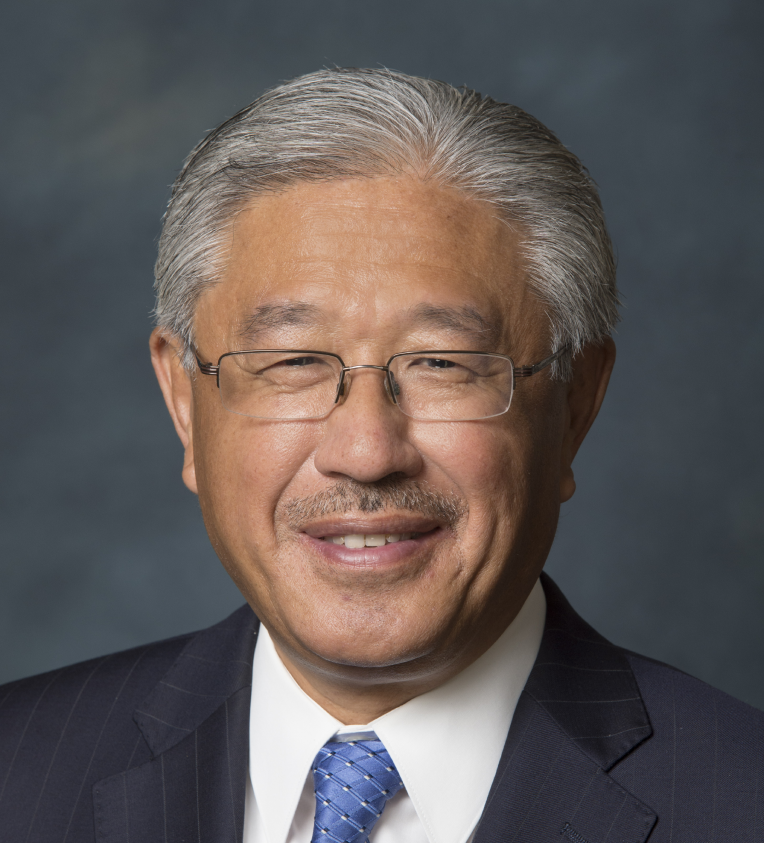Victor J. Dzau is the President of the US National Academy of Medicine (NAM). In addition, he serves as Vice-Chair of the US National Research Council. He is Chancellor Emeritus and James B. Duke Professor of Medicine at Duke University and the past President and CEO of the Duke University Health System. Previously, Dr. Dzau was the Hersey Professor of Medicine and Chairman of Medicine at Harvard Medical School’s Brigham and Women’s Hospital, as well as Bloomfield Professor and Chairman of Medicine at Stanford University.
He is an internationally acclaimed leader and physician-scientist who has made a significant impact through his seminal research in cardiovascular medicine and genetics. His research laid the foundation for the development of the class of lifesaving drugs known as ACE inhibitors, used globally to treat high blood pressure and congestive heart failure. He pioneered gene therapy for vascular disease and was the first to introduce DNA decoy molecules to block transcription as gene therapy in humen. His pioneering research in cardiovascular regeneration led to the Paracrine Hypothesis of stem cell action and the therapeutic strategy of direct cardiac reprogramming.
In his role as a leader in health, Dr. Dzau has led efforts in innovation to improve health. 5 years ago, he led the reorganization of the Institute of Medicine (I OM ) into the new National Academy of Medicine. The NAM addresses health issues of critical importance; advances science and addresses medical, social, and ethical aspects of scientific advancements in health; and inspires the nation and the globe to coalesce around a shared priority and audacious goal to advance health. During his tenure, Dr. Dzau has designed and led important initiatives such as the Commission on a Global Health Risk Framework for the Future, Roadmap for Healthy Longevity, the International Human Gene Editing Initiative; Vital Directions for Health and Health Care; Confronting the Opioid Crisis and the Grand Challenge in Climate Change and Human Health.
Dr. Dzau is active in Global Health. He launched the Duke Institute of Global Health and Duke NUS Graduate School of Medicine Singapore, founded the Division of Global Health Equity at Harvard Brigham Women’s Hospital (headed by Paul Farmer) and chairs the International Advisory Board of McGill’s School of Population and Global Health (led by Tim Evans). He serves on the board of the Global Preparedness Monitoring Board (GPMB), is a Principal of the Global Access to COVID Tools Accelerator (ACT Accelerator), was on the board of Coalition of Epidemic Preparedness and Innovation (CEPI) and is on the board of the Institute of Health Metrics and Evaluation (IHME). He served on the Board of Health Governors of the World Economic Forum and chaired its Global Futures Council on Healthy Longevity and Human Enhancement. Dr. Dzau is co-chair of the Healthy Brain Global Initiative. He has launched important initiatives such as the Global Health Risk Framework (2016), the Global Health and the Future Role of the US (2017), Integrating Clinical Research into Epidemic Response: The Ebola Experience (2017); Crossing the Global Quality Chasm (2018) and the Global Grand Challenge in Healthy Longevity (2019). Three universities ( McGill, Harvard Brigham, and Duke) have established Global Health Lectureships in his name.
Dr. Dzau has served on the Advisory Committee to the NIH Director and as Chair of the NIH Cardiovascular Disease Advisory Committee. He chairs the Steering Committee of the NIH Progenitor Cell Translational Consortium. He serves on the board of Imperial College Health Partners of UK, Health and Biomedical Sciences Council of Singapore, Chairs International Science Advisory Committee of the Qatar Precision Medicine Institute, Chairs the Scientific Boards of the Peter Munk Cardiac Center of University of Toronto and Institute of Cardiovascular and Medical Sciences of University of Glasgow.
Among his many honors and recognitions are the Gustav Nylin Medal from the Swedish Royal College of Medicine, the Research Achievement Award from the American Heart Association, the Ellis Island Medal of Honor, the Poulzer Prize of the European Academy of Sciences and Arts and the Henry Freisen International Prize. He is a member of the National Academy of Medicine, American Academy of Arts and Sciences, Academia Sinica and European Academy of Sciences and Arts. He was made an Honorary Citizen of Singapore, the highest honor conferred to an individual. He has received 16 honorary doctorates.
